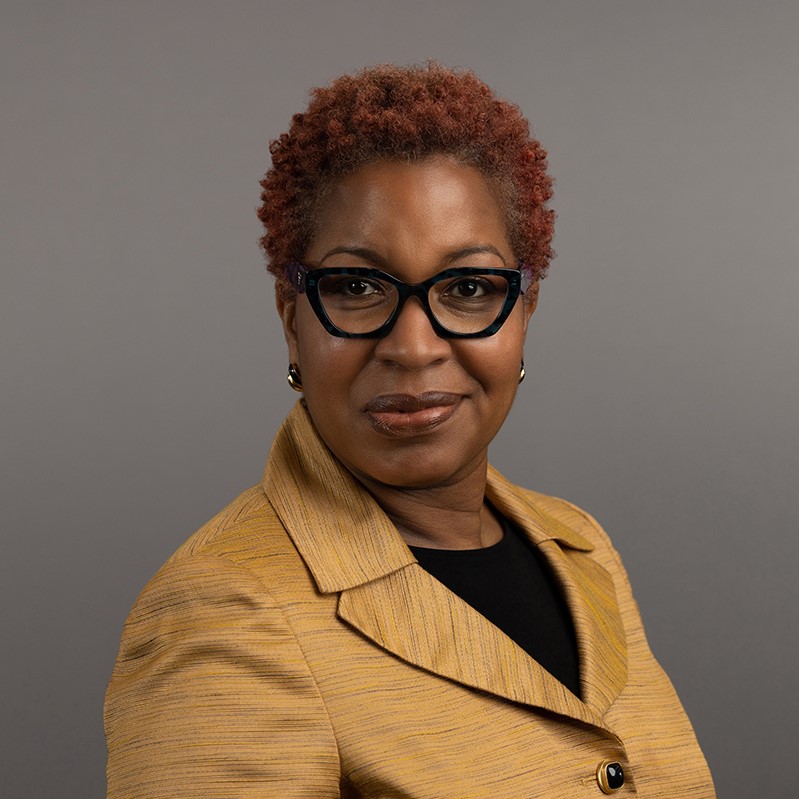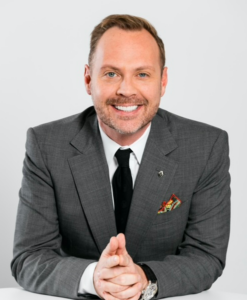6 questions with: Makini Nyanteh of American Institutes for Research
Makini Nyanteh shares the motto she lives by.

A natural strategist capable of navigating complex landscapes, Makini Nyanteh serves as the senior vice president and chief communications officer at the American Institutes for Research (AIR).
With a career spanning over a quarter-century, Nyanteh has emerged as an esteemed figure in the realm of communications, making her mark across both the public and private sectors. Throughout her journey, she has engaged with internationally renowned brands representing a spectrum of industries, from pharmaceuticals to utilities, consumer goods, consumer packaging, financial services, and even the federal government.
Ahead of her session at Ragan’s upcoming Future of Communications conference, we spoke with Nyanteh to get her take on the future of the communications industry.
What book, podcast or other media do you recommend to other comms pros?
There are innumerable resources out there to help us stay apprised of trends in our profession, and keep us on our A-game as practitioners. I follow Grammar Girl on LinkedIn because she is both practical and entertaining. I tend to enjoy books that explore the art of grammar and etymology. Two favorites for me are Woe Is I: The Grammarphobe’s Guide to Better English in Plain English, and the more recent Get to the Point: How to Say What You Mean and Get What You Want. The former is an easy reference guide on sentence structure and a lot of what we seek out in the Associated Press Style Guidelines; the latter is a treatise on delivering effective presentations but also captures the importance of synthesis, brevity and impact.
What’s your favorite tool you use regularly for work?
I live by the motto that proofreading saves lives. So, spellcheck is a daily staple for me.
What excites you most about the future of communications?
I’m particularly excited about how communications professionals are talking about technology, artificial intelligence (AI) in particular, as a tool for our craft. For the past couple of decades, most of the technology conversations were around platforms and software that would support communications at scale, or in globally distributed environments. Today, the conversations are about the risks and rewards of artificial intelligence, the real threats of algorithmic bias, and the innovation space that may be generated when the full capabilities of large language models like ChatGPT are embraced. It’s exciting and terrifying all at the same time.
What communications challenge keeps you up at night?
All communications begin and end with people – the message is sent by a person, and the message must be received by a person. One of the thorniest issues I have dealt with across companies is how best to cultivate communicative leaders (generally at the middle manager level) who are able to effectively inspire and motivate employees to feel connected to the company’s mission and goals. This is the leadership group that is essential to the communications cascade, and most critical to employee engagement – yet it is one of the most difficult groups to mobilize.
What’s the biggest challenge you’ve overcome in your career?
Making the leap from a large regional company to a global multinational company created huge learning curves for me. I made lots of mistakes but learned from every one of them thanks to nurturing supervisors and peers who were eager to partner with me in my learning. Some of those colleagues remain friends and mentors to this day. From small fields to large stages, many of our skills are transferrable. However, this shift taught me to take the time to learn nuance, pace myself, and ask questions when I needed help.
What is the best advice you’ve ever gotten?
A great boss once told me, “You can’t want it for them.” This helped me to keep perspective when advocating for a project or initiative and understand my relative role in the outcome. It depersonalized situations for me, and reminded me to follow the roads where there was the greatest traction and likelihood for progress. It has helped me to pick my battles more effectively.
Join Makini Nyanteh at Ragan’s Future of Communications Conference on Nov. 6-8. She will speak alongside communications leaders from AARP, Ben & Jerry’s, Lockheed Martin Missiles and Fire Control and more.
Isis Simpson-Mersha is a conference producer/ reporter for Ragan. Follow her on LinkedIn.
COMMENT
Ragan.com Daily Headlines
RECOMMENDED READING
Tags: communications







